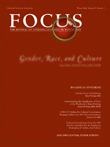Psychological Debriefing for Road Traffic Accident Victims: Three-Year Follow-Up of a Randomised Controlled Trial
Abstract
Background: Psychological debriefing is widely used for trauma victims, but there is uncertainty about its efficacy. We have previously reported a randomised controlled trial which concluded that at 4 months it was ineffective. Aims: To evaluate the 3-year outcome in a randomised controlled trial of debriefing for consecutive subjects admitted to hospital following a road traffic accident. Method: Patients were assessed in hospital by the Impact of Event Scale (IES), Brief Symptom Inventory (BSI) and questionnaire and re-assessed at 3 months and 3 years. The intervention was psychological debriefing as recommended and described in the literature. Results: The intervention group had a significantly worse outcome at 3 years in terms of general psychiatric symptoms (BSI), travel anxiety when being a passenger, pain, physical problems, overall level of functioning, and financial problems. Patients who initially had high intrusion and avoidance symptoms (IES) remained symptomatic if they had received the intervention, but recovered if they did not receive the intervention. Conclusions: Psychological debriefing is ineffective and has adverse long-term effects. It is not an appropriate treatment for trauma victims.



